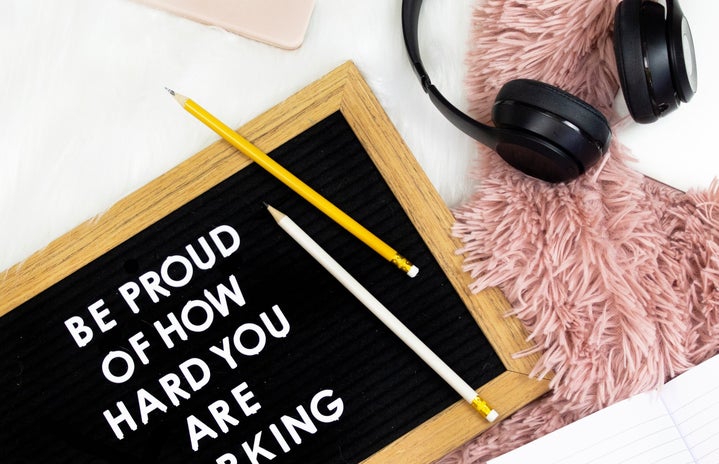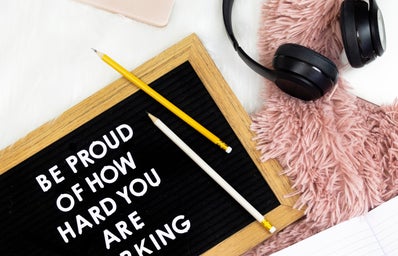As college students, we are seemingly invested in a culture that pushes “the grind” above anything else. Especially at a huge university like UF, it can feel like a constant race to perform the best—earn the highest grades, gain the most leadership positions, get the most-coveted internship. As I enter my second semester in college, I can’t help but feel pressure to “do more.” While this culture can in some ways be beneficial, it can easily breed an environment that pushes competition above the value of learning.
On One Side of the Coin…
There’s no doubt that seeing others work hard can help motivate us to do our best. Whether it be in class or with friends, it can be helpful to hear about another person’s achievements for that extra push to succeed. For instance, seeing a friend receive an exec position in a club can provide a personal challenge to get more involved in your own extracurriculars. Seeing someone you look up to receive an internship can be an incredible motive to push yourself in your classes and involvement on campus. The positive impact of watching others work hard cannot be discounted, but when time spent working turns into a “must,” it becomes problematic.
The Negative Side of the Grind
How many times have you heard someone brag about how little sleep they’ve gotten to finish a paper or assignment? In the academic setting, this kind of talk can quickly become unhealthy, with everyone rushing to prove they’re working the hardest—even at the cost of one’s well-being.
A study from Race to a Cure found that “long-working hours elevate the risk of poor mental health, such as depressive symptoms, worsened emotional well-being, anxiety and suicidal thoughts.” The increased pressure on students to succeed adversely affects mental health to a severe degree. 44% of college students have experienced depression or anxiety.
You are not alone if you’ve felt overwhelmed by your academics or other time commitments. This pressure often stems from parental expectations to pursue a certain career or witnessing the accomplishments of one’s peers. With this, students take on the mentality that pushing themselves to the point of burnout is the only way to succeed.
Why Do We Celebrate Working Too Hard?
Unfortunately, we as students tend to glorify overcommitment and exhaustion. It makes us feel better to brag about how little rest we’ve gotten or how much time we spent on a project because, in our minds, this indicates success.
In all of this, there is a fear that we will not be seen as “committed enough” to our work if we are not pushing ourselves to our limits. An unintended consequence of hustle culture is the need to compare ourselves to others. If we see other people working harder than us, this sparks the mentality that we just “aren’t doing enough.”
Above all, hustle culture becomes toxic when being inspired by others becomes competing with others. Sometimes, competing against other people doesn’t even have to be your peers—it could be a hypothetical version of yourself. We become hung up on this idea of being the “best version of ourselves,” but forget at times that our health is part of this hypothetical self. When we put aside our mental health, physical wellness or relationships for the sake of work, we cannot truly be “successful” because we are sabotaging one part of ourselves to further another.
So rather than striving for this impossible ideal of perfection, we should focus on balance. It may be easy to get caught up in the rhythm of constant hard work, but this can quickly lead to burnout. If you end up spending a few nights working late, follow it up with an off day or two to practice self-care. I find that when I take some time off to do something I love, I feel better than I would have if I had pushed ahead with no breaks. It’s easier said than done to break the mentality of hustling 24/7, but we can start by reminding ourselves that we are capable of taking breaks and still meeting our goals.


